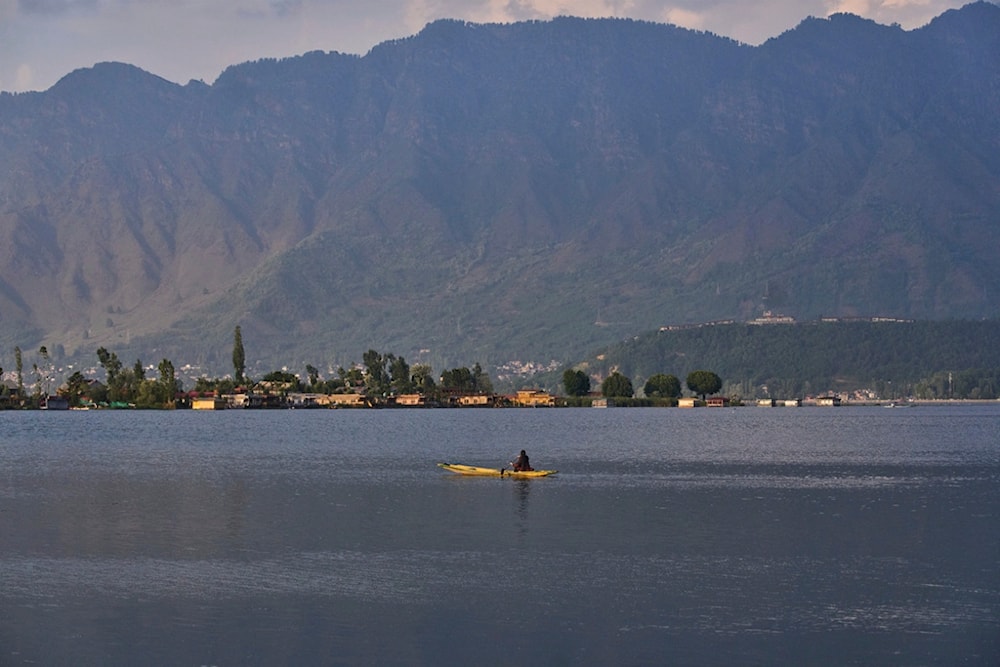India-Pakistan waters treaty still frozen despite ceasefire deal
The treaty, signed in 1960, regulates the sharing of water from the Indus River system and has long stood as a rare symbol of cooperation between the two nuclear-armed rivals.
-

A Kashmiri woman row her wooden boat on Dal Lake in Srinagar, in Indian controlled Kashmir, Saturday, May 10, 2025.(AP Photo/Dar Yasin)
Reuters reported on Saturday that, despite a ceasefire agreed after several days of cross-border violence, the Indus Waters Treaty between India and Pakistan remains on hold.
The treaty, signed in 1960, regulates the sharing of water from the Indus River system and has long stood as a rare symbol of cooperation between the two nuclear-armed rivals. Its suspension came in the wake of a deadly April 22 attack in the Baisaran Valley near Pahalgam, where 26 people, including 25 Indian nationals, were killed in an assault claimed by the Resistance Front—a group linked to the Pakistan-based Lashkar-e-Taiba. India accused Islamabad of harboring the attackers, a charge the Pakistani government firmly denied.
In retaliation, India suspended the treaty, expelled Pakistani diplomats, revoked visas, and closed the Attari-Wagah border crossing. It then launched "Operation Sindoor" on May 7, targeting what it described as militant camps across the Line of Control and deeper into Pakistan. Pakistan responded by suspending the 1972 Simla Agreement, sealing its airspace to Indian aircraft, expelling Indian diplomats, and formally severing trade ties.
The ceasefire, reportedly brokered by the United States, Saudi Arabia, Turkey, and the United Kingdom, was announced on May 10 following days of missile exchanges and drone incursions. However, the pause in active fighting has not translated into broader diplomatic normalization. On May 9—just one day prior to the ceasefire—India accused Pakistan of launching coordinated drone and artillery attacks across its western border, sparking sirens in cities like Amritsar and renewed civilian casualties in Kashmir. Islamabad has denied responsibility, calling the allegations politically motivated.
India's Ministry of External Affairs said that the ceasefire does not alter its stance on the treaty or other diplomatic downgrades, reinforcing the view that trust between the two states remains severely damaged.
Read more: Indian missiles hit Pakistani airbases as explosions rock Lahore

 2 Min Read
2 Min Read








